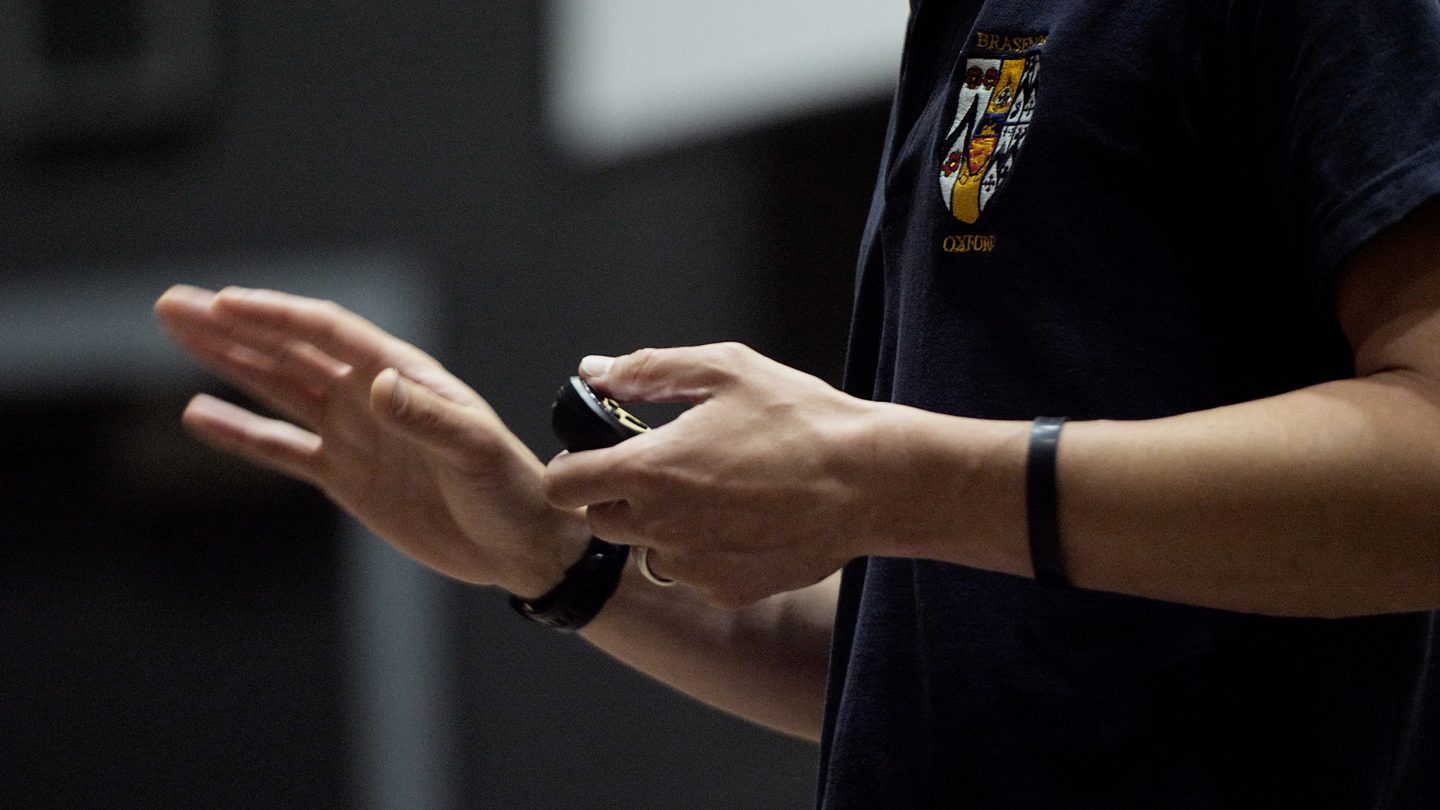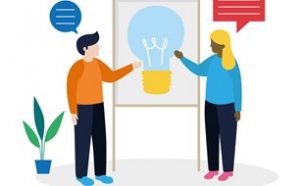
University of Oxford
This resource is developed and delivered by the University of Oxford for Study Higher. Find out more.

At Study Higher we know, from talking to our school contacts, that there is a real need for additional professional support and training. That’s why our Study Higher team at the University of Oxford put together this resource, aimed at school staff, to explore aspects of resilience, mental health and wellbeing in preparing young people for the transition to higher education.
"Resilience is the capacity to bounce back from adversity. [...] Resilient individuals, families and communities are more able to deal with difficulties and adversities than those with less resilience."
A programme of resources for school staff for example, teaching staff and support staff with pastoral contacts or duties, to help empower them to support their students’ resilience and wellbeing. These factors are correlated with educational outcomes, widening participation-criteria and with access and success at higher education. Our video segments introduce teachers to academics and their current research on mental health and wellbeing, as well as to expert practitioners and delivery managers in the field. Downloadable resources and signposting provide participants with a toolkit for implementing their learning.
To better empower school staff to better support the mental health, resilience & wellbeing of pupils in Key Stages 4 and 5 in preparation for the transition to university.
Teachers will:
Watch our overview video and the chat between undergraduate students Roisin and Tolu below to get an idea of what’s available. Then scroll down to see the longer videos from our expert researchers and practitioners along with more information, resources, and links.

Let us introduce you to the key issues with this overview video, then continue on to our resource videos below.
With Roisin and Tolu
Undergraduate students Roisin and Tolu chat about their experiences of going to university. They discuss how issues of resilience can affect that transition, and offer some tips for young people preparing to start their journey into higher education.
With Nick Budge, Mental Health Regional Implementation Lead for the Southeast, Department for Education
Nick Budge, DfE, provides an overview on the progress of the government’s ‘Transforming Children and Young People’s Mental Health Provision: a green paper’ and how this fits within a wider changing landscape of mental health and emotional wellbeing awareness and provision within education.
Nick works at the Department for Education as a mental health regional implementation lead, supporting the education system and individual education settings to develop their mental health and emotional wellbeing provision as part of the government’s Mental Health Support Team programme. Nick draws on a number of years’ experience teaching mathematics and coaching pupils with learning difficulties and challenging behaviour, as well as working as a mental health professional within the criminal justice system delivering mandated rehabilitation programmes to young adults with serious mental health and substance abuse diagnoses. In his free time Nick enjoys skiing, running, reading, and spending time with his family.
You may be interested to hear about the new scheme See, Hear, Respond which is a charity partnership to support vulnerable children which launched 15th June, funded through DfE’s £7m relief fund and led by Barnardo’s:
With Aoife O’Higgins and Michelle Johnson
Research has shown that children in receipt of social work interventions have poorer educational outcomes than their peers in the general population. Join Aoife O’Higgins and Michelle Johnson as they chat about some of this research, recent evidence, and good practice for effective engagement of looked after children in education.
Aoife O’Higgins is a postdoctoral research associate at the oRANGE Lab. Her research focuses on identifying risk and protective factors for poor psycho-social outcomes for people who experience adversity in childhood, in particular those with care experience and refugees. Her aim is to inform the development of social interventions for children who experience adversity and improve their long-term educational and psychological outcomes.
Michelle is the Headteacher at the Oxfordshire Virtual School for Looked After Children. Since April 2014, every local authority in England has had to appoint at least one person to fulfil the local authority’s statutory duty to promote the educational achievement of it’s looked after children, wherever they live or are educated. Within the local authority the virtual school head is the statutory lead (Children and Families Act 2014) with responsibility for ensuring that arrangements are in place to improve educational experiences and outcomes.
With Elizabeth Treasure, Counsellor and Cognitive Behavioural Therapy (CBT) Therapist, University of Oxford
Based on her experience working in Student Welfare and Support Services at Oxford University, Elizabeth highlights issues relevant to young people who are considering their options and preparing for higher education
Elizabeth is a counsellor and CBT therapist who has worked at Oxford University Counselling Service for 25 years. She started out in education as a secondary school teacher, mainly of English, Drama and Literacy Skills, also working in support teaching roles with English as a Second Language (ESL) students and others who had specific difficulties in accessing the mainstream curriculum. In recent years she has also been working as a specialist mental health mentor for the Disabilities Advisory Service, also within the Student Welfare and Support Services.
With Sarah Ashworth, Waller Mental Health Trainer – Schools, Colleges and Universities
Sarah aims to define mental health within the context of the complexity of modern life faced by young people, particularly in relation to the transition to higher education. Following consideration of some of the signs that a young person may be experiencing poor mental health, she considers some of the ways we can best support pupils, including evidence-based strategies for promoting mental health and wellbeing.
Sarah is a fellow of the Higher Education Academy and has worked in a variety of settings related to mental health for over 20 years, including youth work and counselling young people. For the past 16 years, she has worked in higher education settings, developing and delivering accredited modules related to mental health. Simultaneously, for much of this time, she also worked as a mental health professional, including leading a multidisciplinary team supporting students presenting with a range of mental health issues, usually of a complex, severe and enduring nature.
This resource is developed and delivered by the University of Oxford for Study Higher. Find out more.
You may be interested in... Confidence to Argue for Year 10 students from the University of Oxford for Study Higher.
